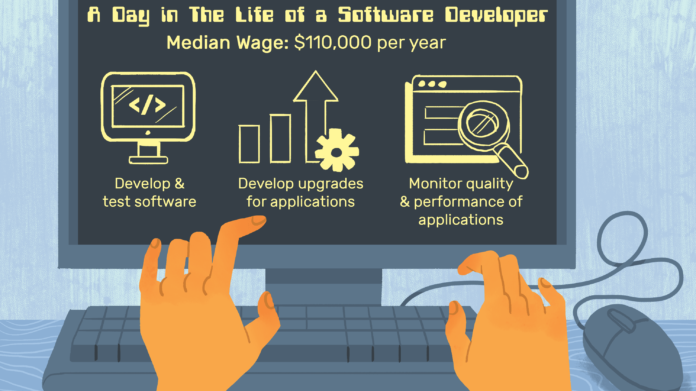If you’re interested in becoming a software developer, now is better a time than any. The job market is plentiful for job seekers with development skills, and the software industry has seen tremendous growth across every state and on a national scale. Furthermore, software developers are often paid fairly well. On average, a software engineer is paid nearly $100,000, and even entry level positions hover around the $70,000 mark.
Even with a non-technical background, it’s still possible to start a career in software development and thrive. Whether you’re interested in a software development for the career potential or for the thrill of learning how to create something from scratch, here are some tips on how you can jumpstart your career:
Be Wary of Niches
In some cases, niches are great. When companies are built, they’re created around the premise of solving a specific product. When a social media influencer starts growing their follower count, chances are they’ve cultivated their brand around a particular niche. Having a niche allows you to hone in on a specific audience that’s much more likely to buy what you’re “selling.” But as a beginner software developer, it may not be in your best interest to specialize in something.
There are several reasons for this. For starters, some companies do their best to avoid working with coding “ninjas” who specialize using certain technologies, because this could mean that they are rigid in their process and less adaptable to change. Many jobs today are looking for candidates that know many languages, even when they know one language well.
Also read: How to Harness the Power of the Internet for Brand Development
Join a Hackathon
There’s a reason why tech enthusiasts are excited about hackathons. These events typically take place over the course of a few days and invite teams to get together and participate in a race towards the completion of a development project. Hackathons are great for new developers because they offer a fantastic learning opportunity, help you learn about team dynamics, force you out of your comfort zone, and pave the way for networking opportunities.
You’ll learn how to use agile DevOps tools from platforms like JFrog in a real coding environment, as well as how to make smart decisions and avoid critical mistakes like feature creep that prevent you from finishing projects. If you’re in the early stages of learning how to program, you can attend hackathons as an observer.
Get Startup Experience
As a new developer, gaining startup experience is a great way to get your feet wet. Startup positions are generally in small teams of under 10 people for early stage startups, giving you the up close and personal experience you need at the beginning of your career. You’ll have a big impact on your code base, take on a significant level of ownership, and work in a fast-paced environment where you have a 360-degree view of the development process. While working for a startup might not be ideal for you in the long-run, it can certainly help you grow as a developer and show you what it takes to be a front-runner in the process.
Also read: New Malware Steals Information From Your PC Even If You Don’t Have Internet
Work on Personal Projects
As you start learning more about software development, now is a great time to become absorbed in your hobby by starting your own side project. Having your own project in the works will show that you’re passionate about code and eager to learn. Additionally, there are many things you can build within your side project that you might not get the chance to do at your day job. This is especially true if you work in a corporate environment where your codebase is inherently compartmentalized.
Furthermore, you might not always have the tools and tasks you need or want in order to remain relevant and up to do date in your career. Applications like Trello and Craigslist had humble beginnings as side projects and can help you learn plenty about what you want out of your career.
Join Development Communities
Talking to other software developers can help you glean plenty of insight about the profession. Whether you’ve found great online communities, forums, or in-person meetups, there’s no denying each of these offer great networking opportunities that can even lead to first-time positions.
Platforms like StackOverflow, Hacker News, and Hashnode are ideal places for relevant discussions at all levels of the software development field. You can even turn to platforms like Reddit to find the most trending discussions and join in on the conversation. Lastly, check out Meetup.com for local meetups, where you can meet other developers in your area.
Also read: Mega-Hacking: Billions of Internet Devices at Risk











